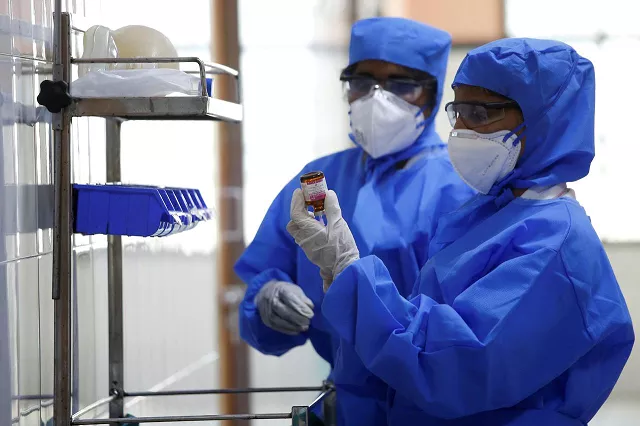Coping with the deadly virus
All countries would need to take concrete policy steps to protect their people and limit harm to their economies
Part of Pakistan seems to be in a state of denial as except for Sindh and Iran-Balochistan border area, one does not see even rudimentary measures being undertaken anywhere else, to protect the population and the economy from an actual outbreak of coronavirus.According to a World Bank newsletter dated March 9, 2020 (Swift action can help developing countries limit economic harm of coronavirus by Ceyla Pazarbasioglu, Vice President, Equitable Growth, Finance and Institutions (EFI), World Bank Group) in the coming weeks, all countries would need to take concrete policy steps to protect their people and limit harm to their economies.
Both the World Bank Group and the MF have unveiled massive financial-support packages. The World Bank Group’s initial fast-track package of $12 billion will immediately support the efforts of developing countries to strengthen health systems. Depending on the duration and the severity of the epidemic, the Bank will be ready to provide a second phase of support with a greater focus on economic and social impacts.
The package deploys the Bank’s full array of capabilities — from the Bank, the International Development Association (IDA), and the International Finance Corporation (IFC) — to limit the damage as quickly as possible. IFC, for instance, is working with commercial banks to expand trade finance and working capital for businesses. It will also directly support its corporate clients to sustain supply chains and limit downside risks.
As Ms Pazabasioglu points out no one can reliably predict the full economic impact of the outbreak.
“The outbreak arrived at a weak point for the world economy, when global growth was beginning to pick up from its lowest rate since the 2009 financial crisis.
“That has troubling implications for developing economies: Tighter credit conditions, weaker growth, and the diversion of government resources to fight the outbreak would reduce funds available for key development priorities. An economic slump would also set back the fight against extreme poverty. It is imperative, therefore, that policymakers everywhere recognize how economic harm can be transmitted from one country to another — and to prevent its quick spread.”
That transmission is likely to occur through several channels. The first is trade: global value chains, which account for nearly half of global trade, are being disrupted by factory shutdowns and delayed resumption of operations. The second is foreign financial flows, which could be shifted away from coronavirus-affected countries. The third is domestic capital — human as well as financial — which is becoming underutilised as factories are idled and people stay at home. The fourth is transport and tourism, a major revenue stream for many developing countries that is shrinking with declining demand and expanding travel restrictions. Finally, sharp drops in commodity prices will harm developing countries that rely on them for much-needed revenue.
Tackling these challenges will require global cooperation, maintains Ms Pazabasioglu.
“Governments should avoid protectionist policies, which would exacerbate disruptions to global value chains and amplify already elevated levels of uncertainty. Even more important, governments should avoid restricting exports of necessary food and medical products and instead work together to support increased production and ensure that resources flow to where they are most needed.”
Developing countries, according to Ms Pazabasioglu, should move to:
Boost spending on health: In many developing countries, public health systems remain weak, making their populations vulnerable to the rapid spread of the outbreak. Governments should boost investments that strengthen these systems to enable faster treatment and containment.
Strengthen the safety net: Cash transfers and free medical services for the most vulnerable people would help contain the outbreak and also limit its financial harm.
Counter financial-market disruptions: Central banks in developing countries — particularly those that are sensitive to bouts of risk aversion — should stand ready to react to disorderly financial market movements. They may need to lower interest rates and inject liquidity to restore financial stability and boost growth.
Published in The Express Tribune, March 14th, 2020.
Like Opinion & Editorial on Facebook, follow @ETOpEd on Twitter to receive all updates on all our daily pieces.


COMMENTS
Comments are moderated and generally will be posted if they are on-topic and not abusive.
For more information, please see our Comments FAQ